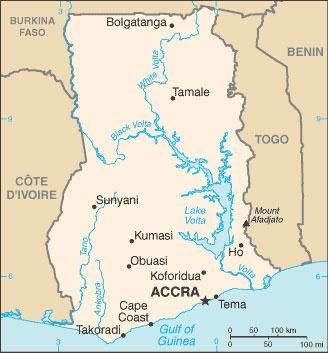The Ghana Prostate Study is designed to assess the burden, risk factor profiles and biomarkers of prostate cancer in Ghanaian men. In the United States, incidence rates of prostate cancer in African-Americans are 1.6-fold higher than those observed in European Americans, yet the causes of this difference remain unknown. Since West Africa is the principal ancestral origin of a substantial proportion of African-American men, one may hypothesize that genetic susceptibility loci that vary in allele frequency by ancestral population could account for part of the observed differences in prostate cancer rates within the U.S. In addition, little is known about the prostate cancer risk factors in African men.
The Ghana Prostate Study has two components: a clinical component to recruit prostate cancer cases in Accra, the capital of Ghana, and a population screening survey component to estimate the prevalence of prostate cancer in the male Accra population. The clinical component of the study includes the collection of clinical and pathological data for 677 prostate cancer cases. The population component of the study includes 1,000 healthy men who underwent screening using serum prostate specific antigen (PSA) testing and digital rectal examination, followed by biopsy confirmation as required. Interviews elicited information on demographics, diet, smoking, alcohol consumption, body size, medical history, health care utilization, and urinary symptoms. Blood samples are being used for PSA testing and for measurements of genetic, hormonal, and nutritional markers.
View publications from the Ghana Prostate Study.
For more information, contact Sonja Berndt.
Occupational and Environmental Epidemiology Branch - Research Areas
